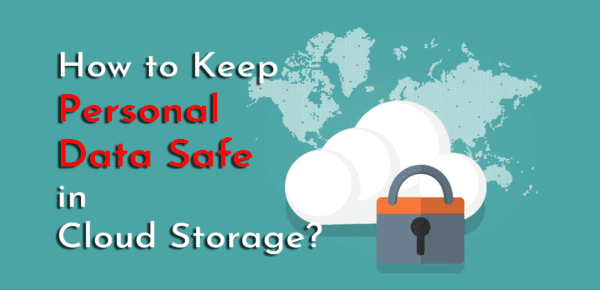As more people rely on cloud storage to store and access personal data, there is an increasing need to ensure that such data remains secure. Cloud storage is an excellent option for backing up files and accessing them from any device with an internet connection. However, it can be vulnerable to security breaches and data theft, especially if proper precautions are not taken. In this article, we will provide a more detailed guide on how to keep personal data safe in cloud storage.
Use Strong Passwords and Two-Factor Authentication
Using strong passwords and enabling two-factor authentication is essential for keeping personal data safe in cloud storage. It is crucial to create passwords that are difficult to guess, preferably containing at least 12 characters, including a mix of uppercase and lowercase letters, numbers, and symbols. Furthermore, users must enable two-factor authentication, which requires an additional form of identification, such as a code sent to their phone or email, to log in to their account. This makes it challenging for cybercriminals to access the account, even if they have the password.
Encrypt Data Before Uploading
Encrypting data before uploading it to cloud storage is another vital step in ensuring data security. Encryption involves converting the data into a code that is unreadable without a decryption key, making it nearly impossible for hackers to steal the data, even if they gain access to the cloud storage account. While some cloud storage services offer encryption features, users can also encrypt the data before uploading it using third-party encryption software.
Use a Trusted Cloud Storage Provider
Choosing a trusted cloud storage provider is crucial in keeping personal data safe. Reputable cloud storage providers will have robust security measures in place, including encryption, two-factor authentication, and data backup. It is also essential to read the provider’s terms of service and privacy policy carefully to ensure that they are not sharing or selling users’ data to third parties.
Be Mindful of Sharing Permissions
Cloud storage services allow users to share files and folders with others. However, it is essential to be mindful of sharing permissions to prevent unauthorized access to personal data. Only share files and folders with trusted individuals, and limit access permissions to only what is necessary. It is also important to revoke access permissions when they are no longer needed.
Regularly Back Up Data
Regularly backing up data is critical for preventing data loss due to a security breach or other unexpected event. Many cloud storage services offer automatic backup options, but it is also possible to manually back up data. It is essential to ensure that the backup data is also encrypted and stored securely. Additionally, it is recommended to have multiple backups in different locations to ensure data is not lost entirely in case of any unfortunate event.
Use Antivirus and Anti-Malware Software
Using antivirus and anti-malware software is another way to keep personal data safe in cloud storage. These software programs help prevent viruses and malware from infecting the computer and cloud storage account. It is important to keep the antivirus and anti-malware software updated to ensure that they are protecting against the latest threats. Additionally, regularly scanning the computer for any malware or viruses is essential.
Monitor Account Activity
Monitoring account activity is crucial for detecting any unauthorized access to personal data. Many cloud storage services offer activity logs that allow users to see when and where their account was accessed. If any suspicious activity is detected, it is essential to change the password immediately and contact the cloud storage provider’s customer support team. Furthermore, monitoring email and other online accounts for suspicious activity can help detect and prevent any security breaches.
Regularly Change Passwords
Regularly changing passwords is critical for preventing unauthorized access to personal data. It is recommended to change passwords every three to six months and use unique passwords for each online account. It is also essential to avoid using easily guessable information such as birthdays, addresses, or names in passwords.
Educate Yourself About Cybersecurity
Educating oneself about cybersecurity is crucial for keeping personal data safe in cloud storage. It is essential to stay up to date on the latest security threats and how to protect against them. Many resources are available online, including articles, videos, and online courses, that can help individuals learn more about cybersecurity best practices.
Be Mindful of Public Wi-Fi
Using public Wi-Fi can put personal data at risk, as cybercriminals can easily intercept data transmitted over unsecured networks. It is recommended to avoid using public Wi-Fi when accessing cloud storage accounts or other sensitive online accounts. If using public Wi-Fi is unavoidable, it is essential to use a virtual private network (VPN) to encrypt data transmitted over the network.
In conclusion, cloud storage can be an excellent option for backing up and accessing personal data, but it is crucial to take proper precautions to ensure data security. Using strong passwords, encrypting data before uploading, choosing a trusted cloud storage provider, being mindful of sharing permissions, regularly backing up data, using antivirus and anti-malware software, monitoring account activity, regularly changing passwords, educating oneself about cybersecurity, and being mindful of public Wi-Fi are all essential steps in keeping personal data safe in cloud storage.

2 thoughts on “How to Keep Personal Data Safe in Cloud Storage”